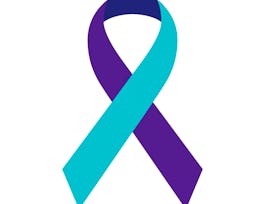How do children overcome hazardous experiences to succeed in life? What can be done to protect young people at risk from trauma, war, disasters, and other adversities? Learn about the importance of fostering resilience in children at risk.


Resilience in Children Exposed to Trauma, Disaster and War: Global Perspectives
Taught in English
Some content may not be translated
41,846 already enrolled
(672 reviews)
Details to know

Add to your LinkedIn profile
11 quizzes
See how employees at top companies are mastering in-demand skills


Earn a career certificate
Add this credential to your LinkedIn profile, resume, or CV
Share it on social media and in your performance review

There are 6 modules in this course
The first module of this course provides an introduction to the course and to the science of resilience. Video lectures discuss the meaning of resilience and the origins of resilience science. Participants will begin to think about case examples of resilience from their own experience and plan for a resilience interview. In the forum discussions, participants will introduce themselves, discuss the meaning of resilience and its importance in their work. Participants also will nominate favorite films and books about true stories of resilience:
What's included
6 videos7 readings2 quizzes
This module highlights the models and methods used in resilience science, including person-focused methods and variable-focused methods. The case study of Dr. Maddaus continues and the case of resilience in early childhood is presented.
What's included
9 videos5 readings2 quizzes
This module focuses on what has been learned from research on children who experience disasters, including the effects on children and patterns of recovery. Participants will watch a video interview with an expert on children in disaster and additional videos on damage and recovery following the F5 Joplin tornado. Participants will also complete a survey on disaster experiences.
What's included
6 videos6 readings2 quizzes
This module highlights what has been learned about the effects of war, terror, and political violence on children and youth. What are the effects of these violent experiences on young people? What has been learned about resilience? We will examine the provocative literature on youth who voluntarily get involved in political conflicts or war. The concluding lecture considers new approaches to peace-building and what might be done to promote peace through interventions with children. This week also features 4 special topics on resilience in young people who experienced the trauma of war and conflict. Choose one or more of the special topics and watch these moving stories of survival. Post your thoughts in the special topics discussion forums on each of these options. If you have time, watch them all. These accounts of resilience are very compelling.
What's included
8 videos5 readings1 quiz
This module summarizes the findings on protective factors for resilience in children. Professor Masten presents her ideas about the adaptive systems that account for most of the capacity for resilience in children, what she has called “ordinary magic.” The roles of families, schools, and culture in resilience are discussed.
What's included
11 videos5 readings2 quizzes
In video lectures this final week of the course, Professor Masten presents a general resilience framework for designing interventions and programs to promote resilience. She also discusses enduring controversies in the study of resilience and new frontiers, including the neurobiology of resilience and growing research on the role of culture in resilience. The course concludes with highlights about growing global work on resilience and final “take home” messages from the course.
What's included
11 videos3 readings2 quizzes
Instructor

Offered by
Recommended if you're interested in Psychology

Yale University

Wesleyan University

Columbia University
Why people choose Coursera for their career




Learner reviews
Showing 3 of 672
672 reviews
- 5 stars
80.71%
- 4 stars
15.28%
- 3 stars
2.67%
- 2 stars
0.74%
- 1 star
0.59%
New to Psychology? Start here.

Open new doors with Coursera Plus
Unlimited access to 7,000+ world-class courses, hands-on projects, and job-ready certificate programs - all included in your subscription
Advance your career with an online degree
Earn a degree from world-class universities - 100% online
Join over 3,400 global companies that choose Coursera for Business
Upskill your employees to excel in the digital economy
Frequently asked questions
Access to lectures and assignments depends on your type of enrollment. If you take a course in audit mode, you will be able to see most course materials for free. To access graded assignments and to earn a Certificate, you will need to purchase the Certificate experience, during or after your audit. If you don't see the audit option:
The course may not offer an audit option. You can try a Free Trial instead, or apply for Financial Aid.
The course may offer 'Full Course, No Certificate' instead. This option lets you see all course materials, submit required assessments, and get a final grade. This also means that you will not be able to purchase a Certificate experience.
When you purchase a Certificate you get access to all course materials, including graded assignments. Upon completing the course, your electronic Certificate will be added to your Accomplishments page - from there, you can print your Certificate or add it to your LinkedIn profile. If you only want to read and view the course content, you can audit the course for free.
You will be eligible for a full refund until two weeks after your payment date, or (for courses that have just launched) until two weeks after the first session of the course begins, whichever is later. You cannot receive a refund once you’ve earned a Course Certificate, even if you complete the course within the two-week refund period. See our full refund policy.



